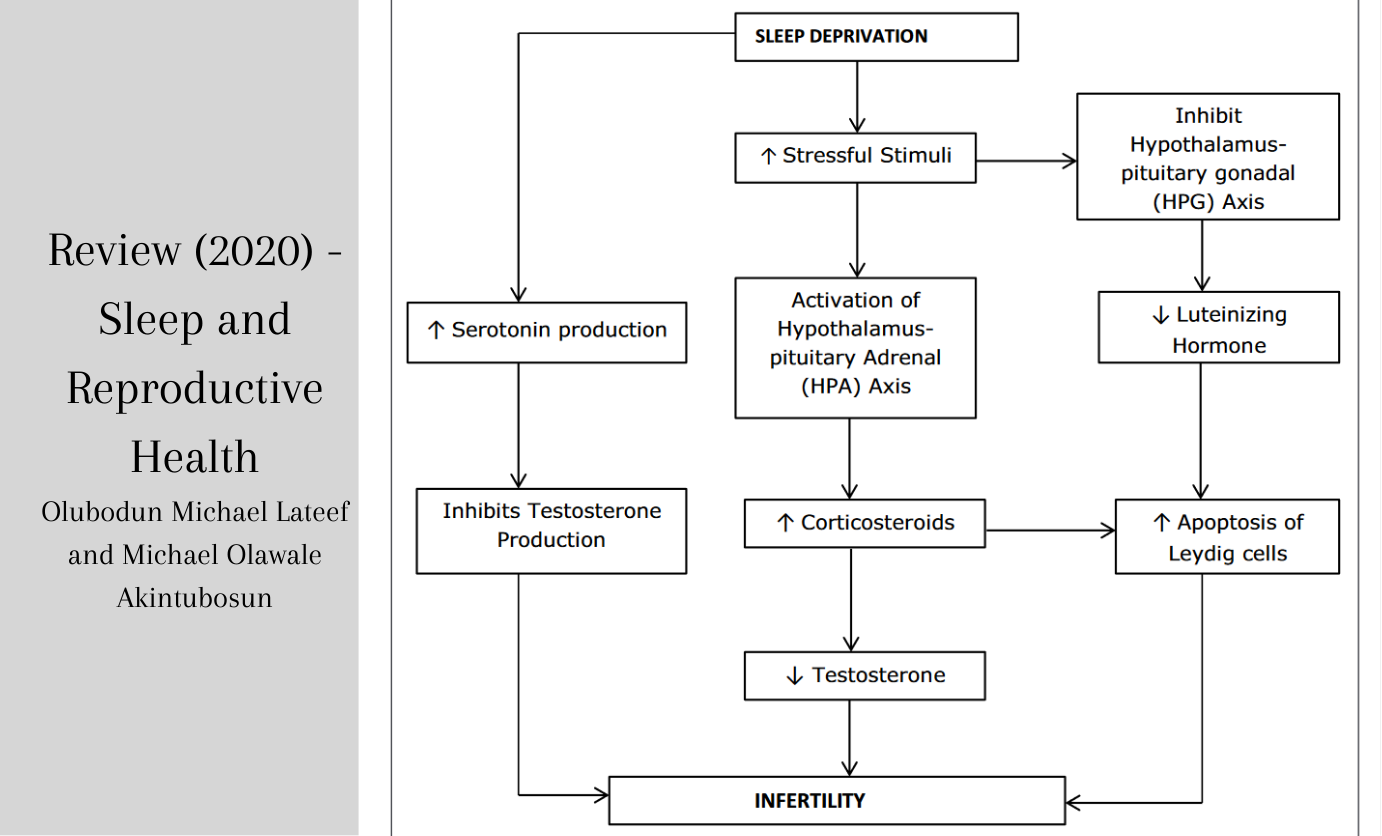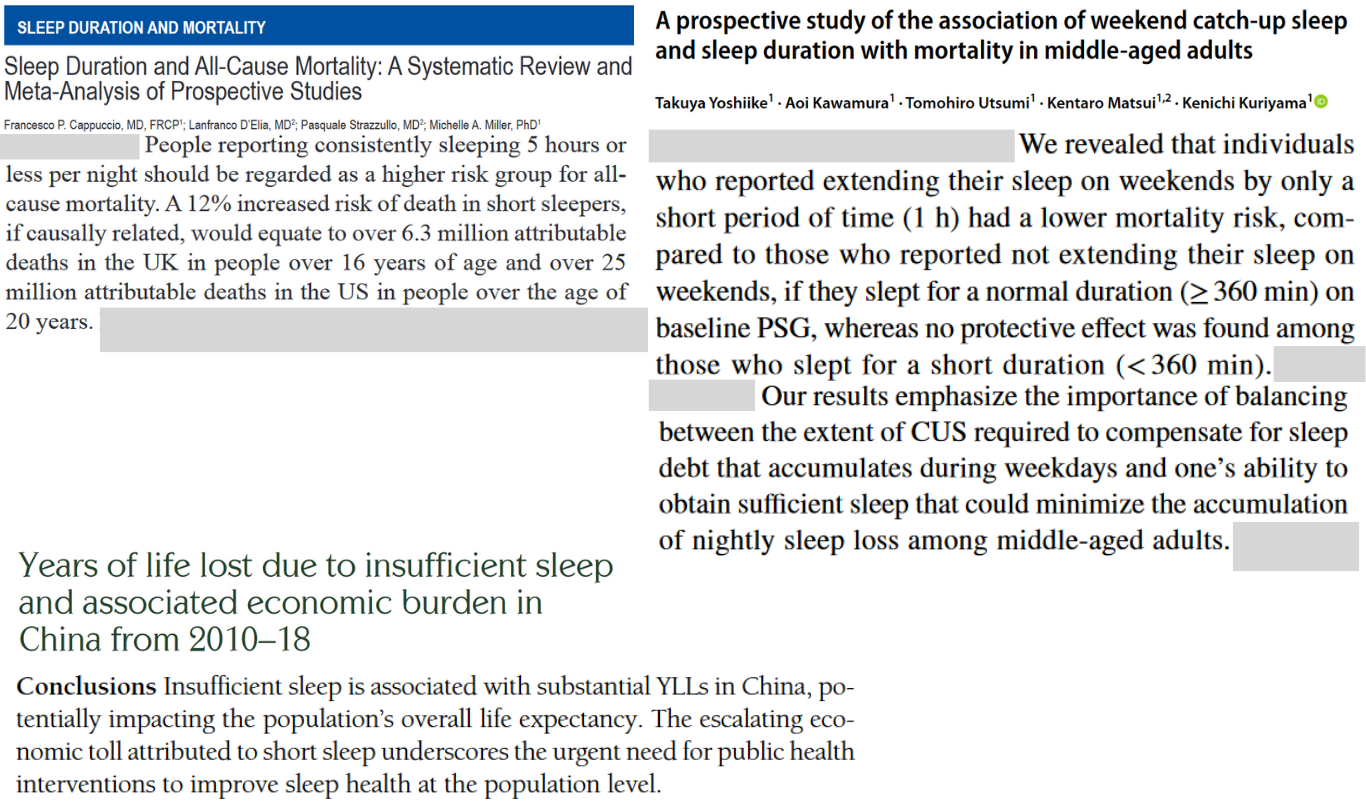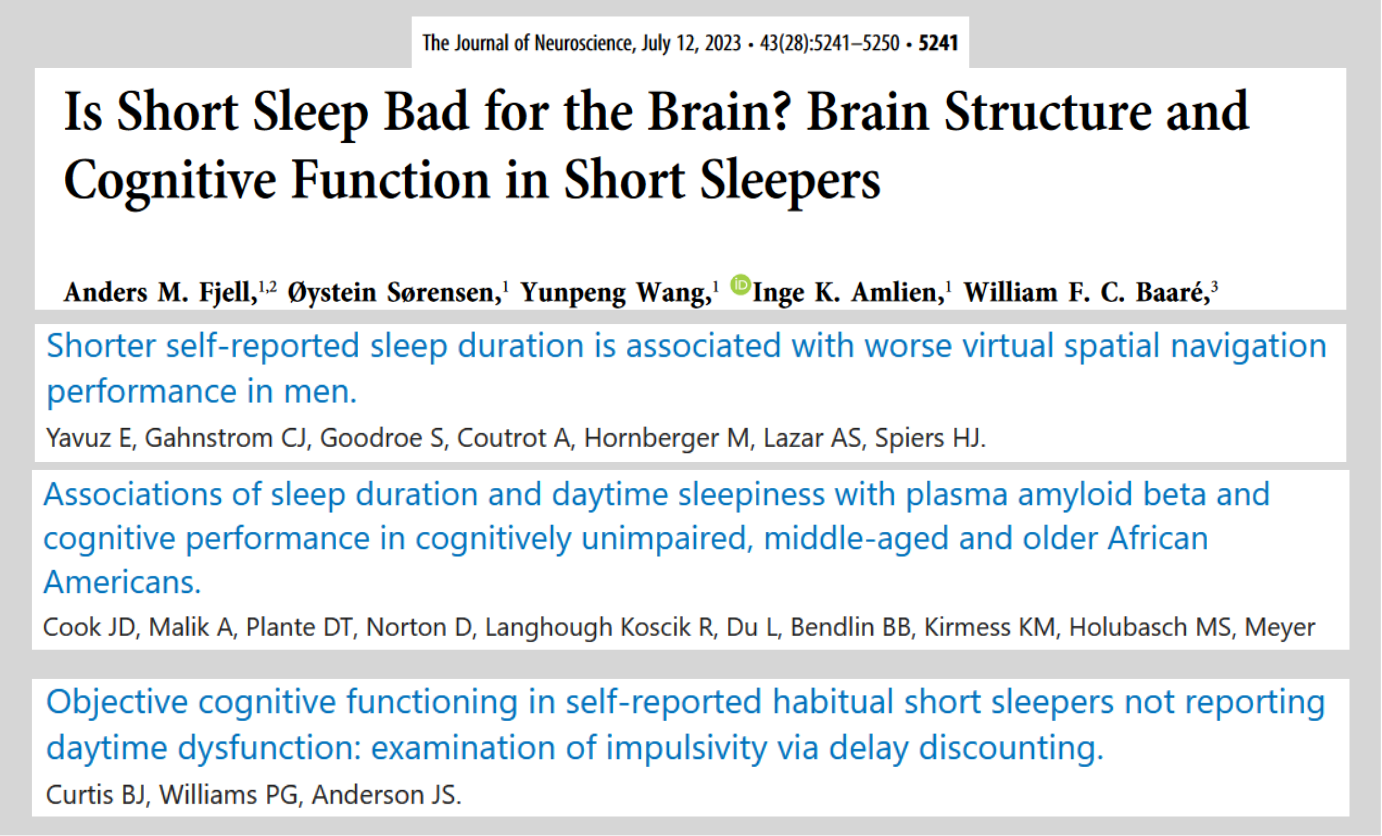Short Sleep Costs £4515 a year, every year.
Excluding the health risks to each individual.
How do we know?
Here is what the data tells us:
Absenteeism and presenteeism = £11.8bn per annum/£625 per employee per annum.
Sleep Deprivation = £40bn per annum/£2,120 per employee per annum.
Policing, services, transportation and construction = £177,000 per 100 workers per annum/£1770 per worker per annum.
Better sleep leads to better lives.
Not just for you, your wallet, your family, or your co-workers. For everyone around you.
Better sleep leads to better relationships, better work, better health, better mood, better finances, better parenting, better driving, better decision making, better emotional control, better quality of life... the list goes on.
Still think you can afford to cut corners with your sleep?
Then let's try a different approach - read on.
Sleep 7 hours or less?
You're classed as Sleep Deprived.
Which means you could have...
-

Decreased Testosterone & Reduced Fertility
"Research reveals that infertility across all ages is affected by the quality, timing, and duration of sleep.
Human and animal models clearly show that sleep deprivation alters the level of reproductive hormones that are key players in determining the tendencies of male and female fertility." -

Reduced Life Expectancy & Quality of Life
The shorter your sleep, the shorter your life and the lower quality that now shorter life will be. Short sleep predicts all-cause mortality.
Subjective sleep quality is significantly associated with physical and mental quality of life, and sleep duration is significantly associated with mental quality of life.
-

Lower Cognitive Ability & Focus
Short sleep is associated with reduced cognitive performance on a multitude of tests, lowering IQ scores, reducing visual-spatial intelligence, short-term and long-term memory, and increasing daytime drowsiness.
...on top of...
lower life expectancy
Subjective and objective sleep duration measurements, sleep quality and sleep regularity are all predictors of all-cause mortality. More regular sleep is a significant predictor of lower all-cause mortality. Sleep regularity is a stronger predictor of all-casue mortality than sleep duration, even when adjusted for age, sex, ethnicity, physical activity, smoking, shift work, lifestyle factors, pre-existing illness, high BMI, high cholesterol, and mental health status.
increased cancer risk
Poor sleep quality is positively associated with the long-term risk of developing cancer. Decreased sleep duration and/or poor sleep hygeine increases breast cancer risk, lung cancer risk, prostate cancer risk, primary liver cancer risk, and are a pancreatic cancer risk factor.
increased diabetes risk
Poor sleep quality is correlated with an increase in, and short sleep is an independent risk factor for type 2 diabetes mellitus risk.
increased obesity risk
Short sleep worsens outcomes of weight loss treatments, changes regulation of 'hunger hormones' leptin and ghrelin, increases the amount of daily calories consumed and leads to poorer food choices.
increased heart disease risk
Poor sleep quality is associated with increased risk of coronary heart disease, even when sleep duration is normal, and when adjusted for age.
increased stroke risk
Poor and worsened sleep quality is associated with an increased risk of stroke, and improving sleep quality demonstrably decreases stroke risk in people with poor sleep quality.
increased Alzheimer's disease risk
Poor sleep quality and duration decrease the removal of beta-amyloid in the brain, resulting in increased levels of these hormones in the brain and higher levels of inflammation. Beta-amyloid is known to be a toxic protein linked to Alzheimer's disease. Sleep disturbances may be able to predict the onset of dementia,
increased risk of depression and depressive symptoms
Both short and disturbed sleep and their combination increase the risk future depressive symptoms, impair multiple cognitive and affective functions such as mood and emotional regulation.
increased risk of death by suicide
Poor subjective sleep quality is associated with increased risk for death by suicide 10 years later, even after adjustment for depressive symptoms.
decreased immune system capacity
Sleep affects various parts of the imune system, sleep deficiencies are known to lead to chronic systemic low-grade inflammation and is associated with several diseases that have an inflammatory component such as diabetes, atherosclerosis, and neurodegeneration.
decreased emotional processing
Poor sleep reduces the processing of emotional and reward-related information in the brain, reducing the consolidation of memories, and reducing adaptive cognitive and emotional responses when awake.
decreased memory and creative ability
Cognitive abaility is impacted on many levels with reduced sleep duration and quality, including vigilance, learning and memory, decision making, creativity, reduced response times and reduced response accuracy.
No more risk.
Take control of your sleep.
Getting Great Sleep in today's world of artificial light, early work and school wake up requirements and never-ending to-do lists is difficult.
But there is a way, and we're going to help you find it.

People who write down and describe their goals are on average 42% more likely to achieve those goals. Sleep is no different.
Using a Sleep Journal properly grants you access to that extra 42% liklihood of achieving great sleep every night.
To help you get there, we've curated a 16-part course to guide you on the road to great sleep, included with every journal.
Combine both, and you can expect to see:
- Improved Sleep Hygeine Awareness
- Monthly Sleep Wellness Overview, Self-Assessment Tool and Habit Tracker
- Guidance on falling and staying asleep
- Weekly Sleep Habit Checklist and Diary
- Measurable Improvement in Total Sleep Time, Recovery and Energy Scores
- Regular Email check-ins with in-depth reviews of sleep hygeine practices
- 12-month undated format for use at any time of year

Sleep Mastery
Sleep Mastery - Complete 12 Month Journal & Program
Share



